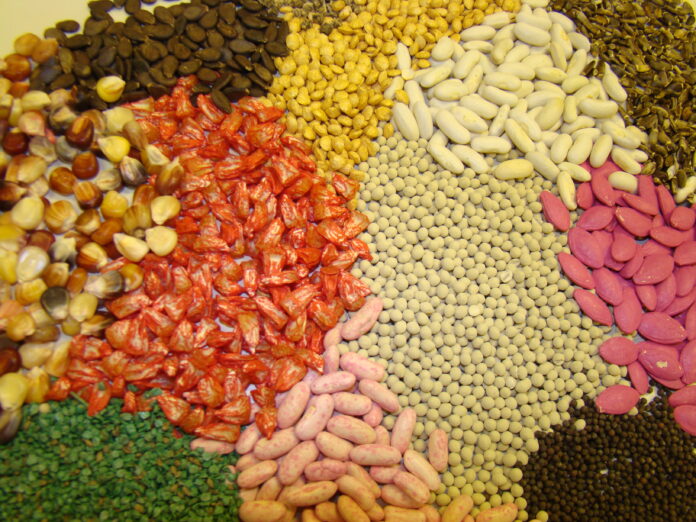
Jackie Bantle – Saskatchewan Perennial Society
In the deep, dark cold of winter, gardening season seems like a distant memory or wishful thinking. I have too many houseplants so, to satisfy my gardening itch, I have decided that I am finally going to clean up and organize my extensive flower and vegetable seed collection. I am harboring seed from many years and it is time to unclutter that mess!
I’m often asked, “How do you know if your vegetable or flower seed is still viable? How long can I store my vegetable seed? Should I buy new seed this year?” Storage conditions and storage time varies for each vegetable and flower. Flower seeds generally last longer than most vegetable seeds. Some seeds are easily kept for up to five years, while others should be replaced annually.
A general rule of thumb is that high moisture and high temperature reduce the quality and viability of flower and vegetable seeds. This doesn’t mean that you need to invest in a dehumidification system for your “high tech, airtight, temperature controlled, underground seed storage unit.” For most seeds, storage temperatures between 5 and10ºC are more than adequate for at least one year of storage, as long as the seeds are dry and stored under dry conditions (air tight containers or plastic bags are adequate).
Vegetables that have a seed storage life of five years, under dry conditions with average to cool temperatures, include: cucumber, endive, lettuce, muskmelon and radish. At the other extreme, some vegetables that should only be stored for one year include: onion, parsley and parsnip. Seed storage of sweet corn, leek and okra should be limited to two years. Germination rates will decline significantly decline after that time. A maximum of three years of seed storage is recommended for asparagus, beans, broccoli, carrots, celery, kohlrabi, peppers, spinach and peas. Beet, Brussels sprout, cabbage, cauliflower, Swiss chard, eggplant, kale, pumpkin, squash, rutabaga, tomato and watermelon seed should have good germination rates even after four years of storage.
Flower seed viability varies immensely. For example, nasturtium and zinnia seeds can easily last up to 7 years whereas pansy and impatiens seeds may remain viable for only 1 or 2 years.
Even though some of your seed might be older than these recommended dates, there is no need to throw it out. Instead, do your own simple home germination test this winter. Take two pieces of paper towel. Place one piece of moistened paper towel on a plate. Spread out ten seeds on the paper towel. Moisten the second paper towel and place it lightly over the seeds. Keep the paper towels lightly moistened and place the plate in a warm location (20ºC), out of direct sunlight. After several days, check the seeds for germination. Some seeds germinate faster than others, so be patient. For example, the average germination time for radish and lettuce is four days at 20ºC, whereas beans can take up to 18 days to germinate at that temperature. If seeds haven’t germinated after 20 days, they are probably not going to.
By counting the number of seeds that have germinated, you can determine your germination percentage. For example, if 4 seeds out of the 10 have germinated, your germination rate is 40%. This number is important when it comes to seeding time. A 40% germination rate tells you that in order to have plants at your desire spacing, you will need to seed 2.5 seeds for every desired plant. Since half seeds don’t grow very well, you will need to seed 3 seeds for every desired plant to ensure you have an adequate plant stand. If all 3 seeds germinate, your hoe can easily take care of the extra plants.
Next week, I will discuss some guidelines on what to look for when choosing new cultivars of vegetables to grow: how to decipher the seed catalogue lingo.This column is provided courtesy of the Saskatchewan Perennial Society (SPS; saskperennial@hotmail.com ). Check out our website (www.saskperennial.ca) or Facebook page (www.facebook.com/saskperennial)

